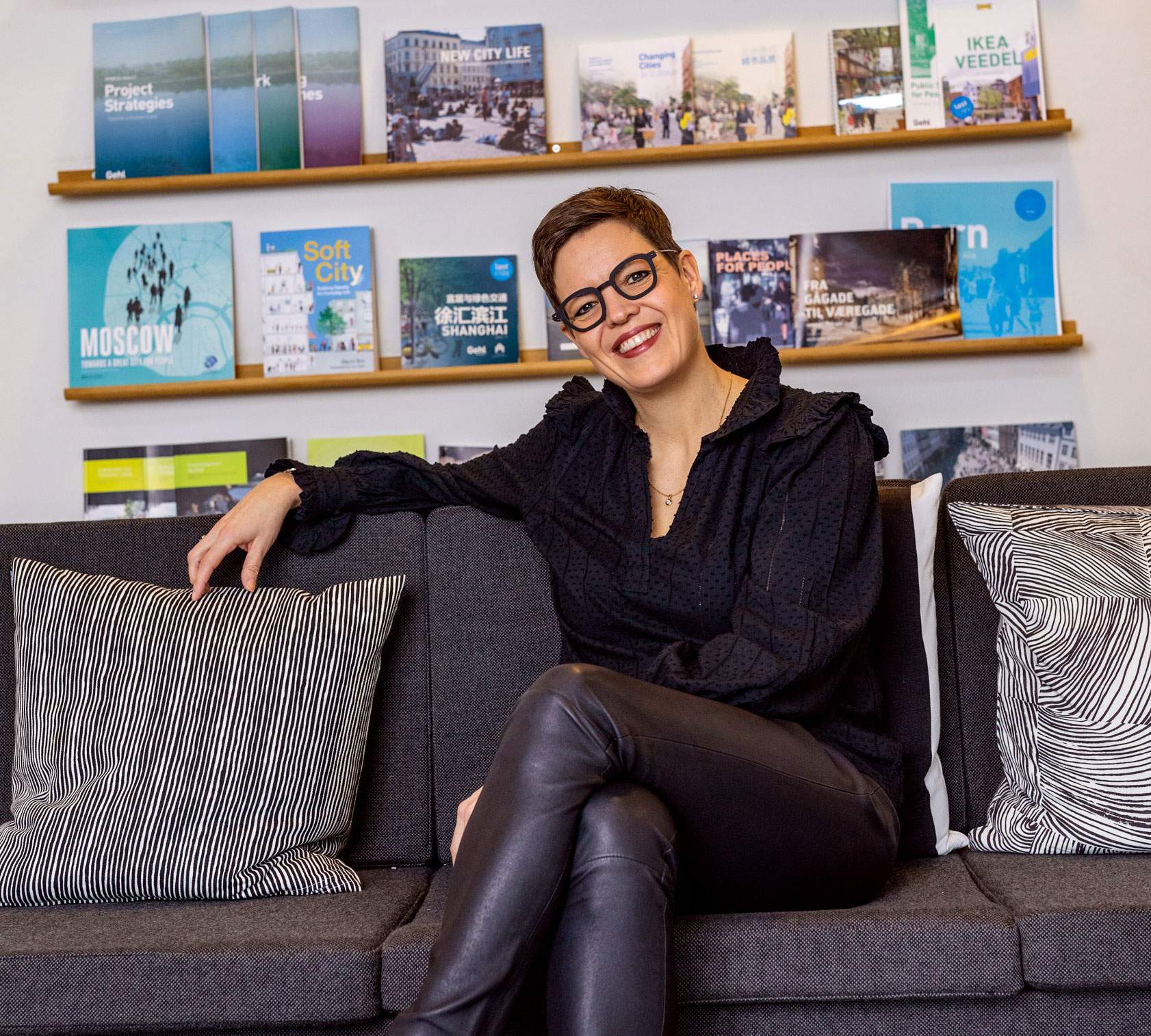Helle Søholt / Global
What is the ‘new mobility’?
It’s hard to think of urbanism without thinking of Gehl, the firm that Helle Søholt co-founded with Jan Gehl in 2000. Gehl has earned the respect of architects and urban designers due to its people-centred approach to our city spaces. Here, Søholt, who continues to serve as company CEO, defines progress and expresses the value of personal mobility.
Helle Søholt
Architect and urbanist

How do you define progress?
Progress is when something benefits people and communities. Clever infrastructure, architecture or design in itself is not necessarily the goal. But these things can serve as a means of achieving a more sustainable future and a healthier urban life. Progress needs to be framed around people; their health and opportunities.
How does that manifest itself in your work?
We have what we call a “people first” approach to urban strategy and design. That means we start by analysing communities’ needs, as well as their degrees of development and engagement. We try to map what we call public life, which is basically mobility patterns, but also activities that people engage in when they leave their homes. It is the life that is happening outside and between buildings rather than inside them. Understanding public life helps to illustrate an area’s quality of life. That is our basis and we work from there, making sure that we can account for people’s needs.
How is personal mobility in our cities set to change?
Transport is important for ensuring many things. This includes access to opportunities, such as better jobs and housing, and also educational and medical facilities. In the future I hope to see cities that are more compact and mixed-use. The pandemic has encouraged this already by establishing a kind of localism. Because people are working from home more, shopping districts and facilities are becoming less centralised.
What is the Gehl vision of the future?
We hope that cities will become more liveable and people-oriented. We hope they’ll work on a human scale so that people can be socially connected in the communities where they live. Essentially, we want cities that are great to live and work in.
Where do you mainly find your inspiration?
By meeting people – reaching out to communities and researchers, and learning from everyday life. We do too much planning from behind our desks and in our offices. We need to be out there understanding how people live in cities. That way we can better understand where to place our efforts and where our work will have the greatest impact.
To hear the full interview, listen to The Art of Moving Forward podcast on monocle.com.
Further information on official fuel consumption figures and the official specific CO ₂ emissions of new passenger cars can be found in the guide “Information on the fuel consumption, CO ₂ emissions and electricity consumption of new cars”, which is available free of charge at all sales dealerships and from DAT Deutsche Automobil Treuhand


